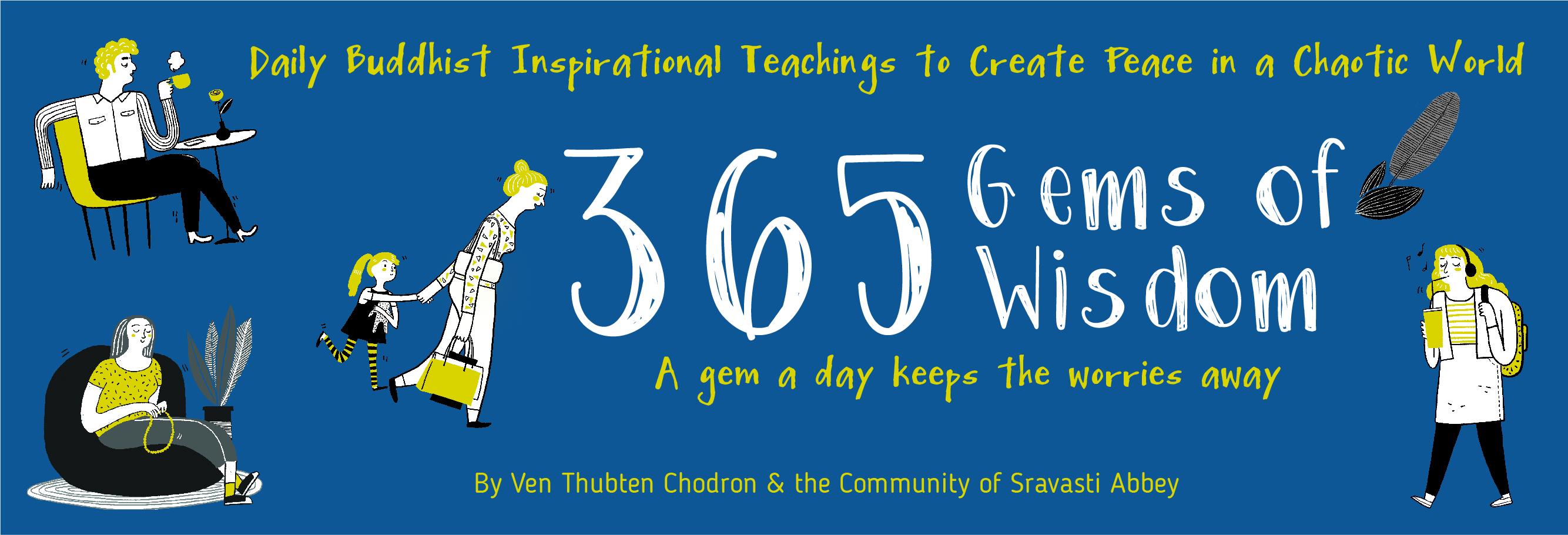June 11 : What Are We Looking for in the Teachings?
It is interesting sometimes to ask ourselves what we are looking for in the teachings. Are we looking to hear teachings so that we feel good afterwards? If that is your motivation for listening to teachings, you are not going to feel good. When I teach you about the precious human life and how fortunate we are not born as hell beings, animals and hungry ghosts, you will roll your eyes and say, “But I don’t believe in those. I don’t even want to think about them.” You will not be happy either when the talk turns to death. “I don’t want to hear about death.” Or about the disadvantages of samsara. “I don’t want to hear about how you have to separate from everything that you like, and you don’t get what you want.” In reality, this is how our lives are, but we still say, “Don’t tell me that!” So what is our motivation for approaching the teachings? Are we seeking liberation or are we seeking to feel good afterwards?
Some people really like doing the visualisations and the mantra recitations as very often you will come out from the practice, feeling quite blissful. But if that is what your mind is seeking, we need to ask ourselves if our motivation matches with what we say at the start of the prayer — by practising generosity and other far-reaching practices, may I attain Buddhahood for the benefit of all sentient beings. I am not saying it is bad to feel good after your meditation session, but that we should not use feeling good as the criteria for a productive meditation session. Sometimes they give us adverse effects when we feel we do not understand certain things or ourselves. It is this process of questioning and pushing our buttons so that we must look deeper that produces a lot of growth, and not merely the glossing over of “Isn’t this Dharma path wonderful? I feel so good.”
We can recite the Four Immeasurables: May all sentient beings have happiness and its causes; (“Oh wonderful.”) May all sentient beings be free of suffering and its causes; (“Very wonderful.”) May all sentient beings not be separated from sorrowless bliss; (“Oh, I’m floating on a cloud.”) May all sentient beings abide in equanimity, free of bias, attachment and anger (“Wonderful, that’s an ideal world. That’s what I want.”).
If you just stay there, you feel good. But when you come out of your meditation, your mind falls back to its habitual tendencies — “Somebody left his dirty dish in the sink. Who does this person think he is, leaving it for me to clean up? This is totally unacceptable. I have to tell the person off for his benefit because he is just misbehaving.” All our feel-good Four Immeasurables are thrown out of the window at this point, and we are not even able to admit our anger or see our absence of equanimity, let alone love, compassion and joy. The feel-good aspect and the reality of the mind becomes far apart. We must start to cultivate a different way of looking at things.
“365 Gems of Wisdom” e-book is out now!

